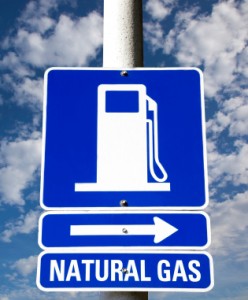11 item(s) were returned.
Energy independence has been a goal of the United States since the oil crisis of the 1970s. And while 2019 saw record domestic oil production, the United States was still a net importer of oil with net imports totaling $192 billion. In an OurEnergyPolicy webinar on June 24, 2020, Yossie Hollander—Co-Founder and Chairman of The Fuel Freedom Foundation—discussed energy independence and current efforts to achieve it. He explained how in today’s interconnected world, reducing U.S. dependence on global oil prices requires more than just increasing domestic oil production. To make energy (oil) independence a reality, we need a broader approach… [more]
View InsightRanking Member - Subcommittee on Public Lands and Environmental Regulations
U.S. House of Representatives
Donald Trump claims to have an “America First” energy plan. His administration’s actions over the past 10 months have made it clear that what he truly puts first are the interests of oil, gas and coal executives. Everyday Americans and our iconic American landscapes come last, if he considers them at all. Republicans used to label their policies “energy independence” and now call it “energy dominance,” but it looks more like the ransacking of our public lands and the fleecing of American taxpayers. The public wants a smarter way forward – an energy strategy that prioritizes renewables, takes climate change… [more]
View InsightPresident
Micro-Utilities, Inc.
Twenty-nine states have renewable energy mandates. California’s mandate calls for 33% renewable energy by 2020 while New York State mandates 50% of its electricity be renewable by 2030. It is one thing to set energy or electricity mandates and quite another to achieve them. New York is quite fortunate; today 26% of its electricity comes from renewable electricity sources. However, large hydroelectric facilities today provide 80% of NY’s renewable electricity and, unless more hydropower is imported from Canada, an expanded contribution from large hydropower seems unlikely. So to meet this 50% mandate, solar and wind which today produce 5.2% of… [more]
View InsightProfessor of Physics
City College of the City University of New York
Encouraging energy R&D, substituting solar, wind, and safe nuclear energy for fossil fuels is a big plus for safeguarding the global environment. But it is also a vital step in fighting terrorism. For many decades, the Organization of Petroleum Exporting Countries, or OPEC as the international cartel is commonly known, successfully regulated world oil supplies and thereby the price of a barrel of oil on the international market. By doing so it filled the national treasuries of Saudi Arabia, Iran, Iraq, Venezuela and nine her nations across the globe, giving them an outsized role on the stage of world affairs,… [more]
View InsightDirector, Stakeholder Relations/External Affairs
Brookhaven National Laboratory
Keystone XL has been called the world’s best known pipeline that has not been built. Controversy over the pipeline itself has largely subsided but this project linking the oil sands of Northern Alberta to the large refineries of the Gulf Coast has become a rallying point for an “off oil” campaign. A presidential permit for import facilities is the sole remaining requirement before construction can begin. KXL would be the 82nd major pipeline in the US, and is the safest and most technologically advanced. It would provide diluted bitumen from Alberta’s oil sands and Bakken crude from Montana and North Dakota to… [more]
View InsightPennsylvania’s Act 13 of 2012 created a three-year Natural Gas Energy Development Program that will allocate $20 million in grant funds to purchase or convert vehicles to natural gas. The goal of Act 13 is “to help the state’s ongoing effort to move towards energy independence.” Last week, Pennsylvania’s Department of Environmental Protection issued the first $6.7 million of the competitive grant funds to 18 organizations across the state. The grant money comes from Pennsylvania’s drilling impact fee, which has raised $200 million from the gas industry flourishing in the Marcellus Shale. The grants are capped at 50 percent of… [more]
View InsightRecent increases in U.S. natural gas and oil production – increases dramatic enough to drive speculation about and calls for U.S. exports of these resources – have brought the prospect of an energy self-sufficient U.S. into sight, while geopolitical and market volatility around the globe continue to make energy independence an attractive policy goal. However, the question remains: Would U.S. energy independence necessarily mean U.S. energy security? According to a report from Securing America’s Future Energy, The New American Oil Boom: Implications for Energy Security, “energy security,” defined as our economy’s ability to withstand shocks to energy supply, is too… [more]
View InsightA new report from the Energy Security Leadership Council, a group including business leaders and retired military officials, warns that U.S. energy policy advocates are conflating “energy independence” with “energy security.” Relying on increased domestic production oil and natural gas is misguided, they argue, and the country should instead seek to decrease reliance on all oil. The report acknowledges that the recent boom in energy production in the U.S. will have positive economic impacts, and calls for the government to make federal lands available for oil and gas development. However, the authors state, “as long as the United States remains… [more]
View InsightA recent Congressional Research Service report titled “Rising Gasoline Prices 2012” states that Congress has “limited short term options … to address gasoline prices.” The report identifies six short-run policy options – a Strategic Petroleum Reserve release, a gasoline tax holiday, relaxed fuel specifications, limits on refined gasoline exports, limits on commodities speculation, and diplomatic measures – and concludes that it is unclear “what the price impact of these short term options would be” and that they would involve policy tradeoffs which may include “national security, fiscal, and health priorities.” The report briefly addresses longer-term policy options, i.e. “measures that… [more]
View InsightThe spending bill being negotiated by the House and Senate is expected to fund the federal government for the remainder of the fiscal year. Notable among the bill’s energy-related measures is its defunding of the DOE program responsible for the energy-efficient light bulb standards due to take effect in 2012. The spending bill would not overturn these standards, but would effectively block DOE’s ability to enforce them. The standards are expected to phase out the 100 watt incandescent bulb in 2012, and phase out 40-, 60- and 75-watt incandescents by 2014. [New York Times] The standards were passed on a… [more]
View Insight




